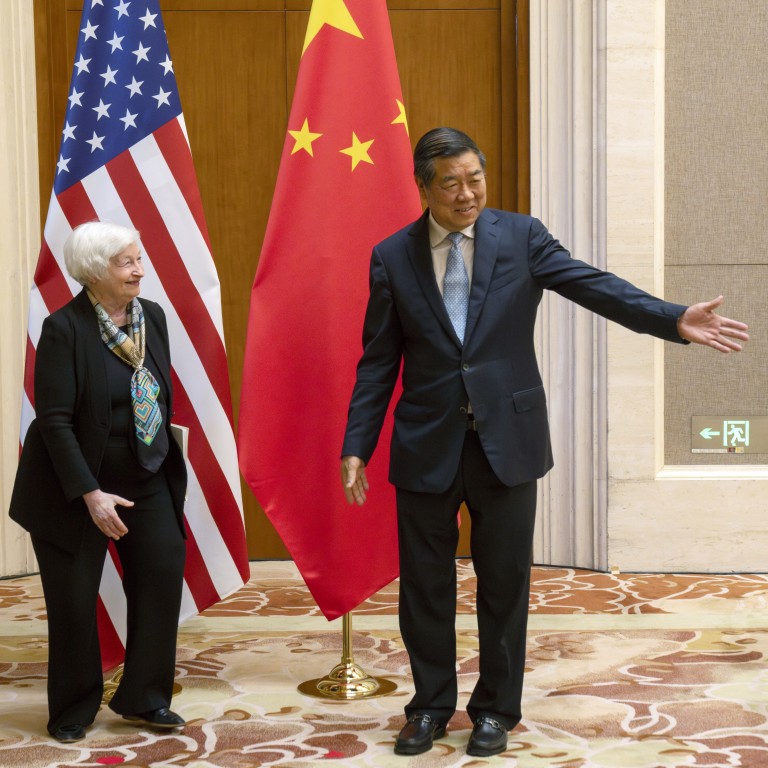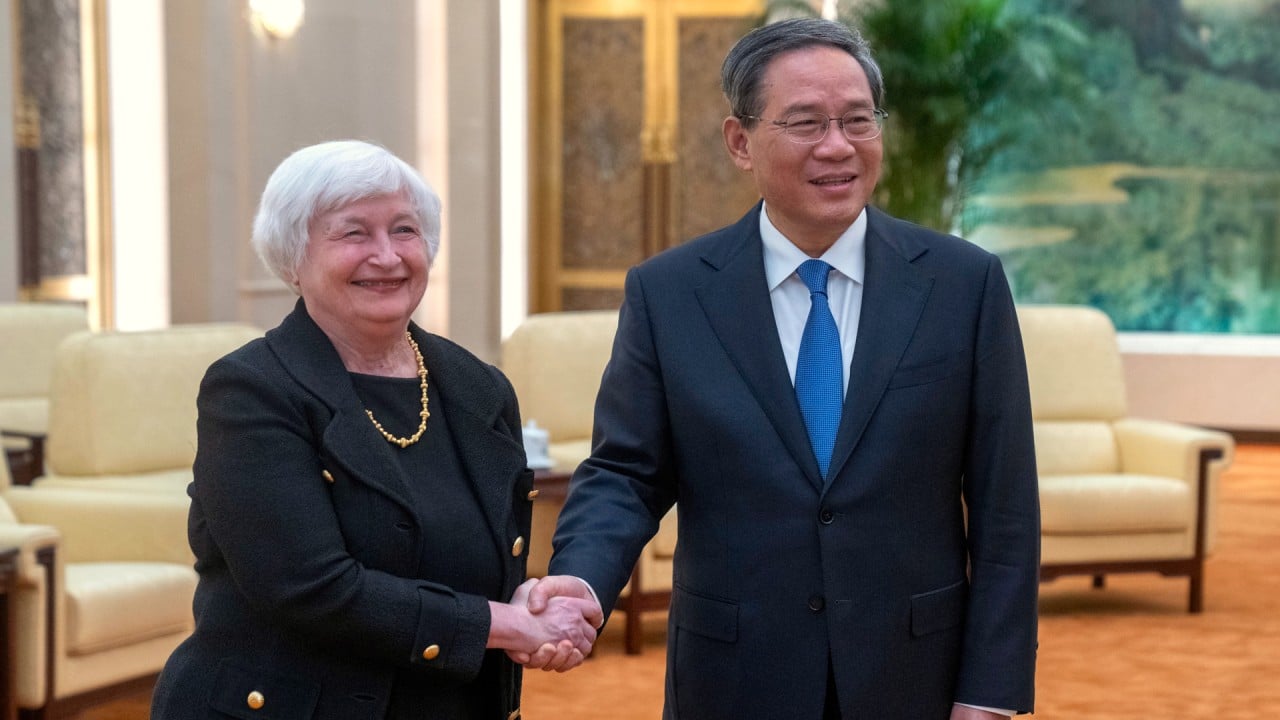
Exclusive | Janet Yellen’s China plan: US Treasury secretary to meet American firms in Guangzhou before officials in Beijing, sources say
- April follow-up trip to Beijing by Janet Yellen to be preceded by a stop in Guangzhou, where she will hear concerns related to overcapacity and intellectual protection
- Dealing with US business community overseas would normally fall under the oversight of Secretary of Commerce Gina Raimondo
US Secretary of the Treasury Janet Yellen is scheduled to meet representatives of American businesses in the southern city of Guangzhou before heading to Beijing in early April to get face time with Chinese counterparts, sources say.
A “small town hall meeting” will be held, and Yellen will have a 45-minute question-and-answer session with the business community, according to details shared with the Post.
“The secretary wants to hear about the issues facing US firms in China and is particularly interested in overcapacity, IP [intellectual property] issues and import-substitution-related issues,” a source said on condition of anonymity.
Invitations have already been sent to US business representatives with operations in China, the source added.
China’s foreign firms fear golden era over as Beijing aims to ‘solidify control’
The US official, who visited Beijing in July to help set up a bilateral economic and financial working group, will travel to the Chinese capital where she is likely to meet with Vice-Premier He Lifeng, commerce minister Wang Wentao and central bank governor Pan Gongsheng, another source added on background.
Yellen’s Guangzhou stop and meeting with American businesses would be unusual because that is largely regarded as falling under the purview of US Secretary of Commerce Gina Raimondo.
The trip will come at a time when China’s overcapacity issues, particularly in regard to electric vehicles, have raised eyebrows and intensified discussions in the run-up to November’s US presidential election.
To address the risks of connected vehicles that use technology from China and other countries of concern, his administration said “unprecedented action” was being taken.
Han Shen Lin, China country director at The Asia Group, a Washington-based consultancy, said: “Yellen’s forthcoming visit signals continued commitment for substantive US-China collaboration at the working levels – where it matters the most to multinationals, which depend on the government for clarity on policy guardrails.”
Sustained interactions ... are important and constructive for the most consequential bilateral relationship globally
The US embassy in China did not reply to the Post’s request for comment.
“Sustained interactions between the two sides – especially in a US election year when getting tough on China is increasingly an electoral purity test – are important and constructive for the most consequential bilateral relationship globally and the world at large,” said Wang Zichen, a research fellow at the Centre for China and Globalisation, a Beijing-based think tank.
China’s private firms fed up with crippling payment delays, ‘red-tape excuses’
American politicians are also expected to challenge China’s exports of electric vehicles, lithium batteries and solar cells, due to concerns about oversupplies distorting the US market.
China’s EV exports to the US were down by 42 per cent in the first two months of 2024, year on year, with lithium-battery exports to the country decreasing by 46 per cent.
The European Union started an anti-subsidy probe into Chinese electric vehicles in October. China’s EV export volume to the bloc fell by nearly 20 per cent from a year earlier to 75,626 units, customs data showed.
Stephen Orlins, president of the non-profit National Committee on US-China Relations, said at the China Development Forum on Sunday that the bilateral relationship still has room for improvement.
There was an increase in the number of CEOs who attended the forum, creating a better vibe, Orlins said, adding that American firms have been keen to get a handle on China’s policy direction following the pandemic.



